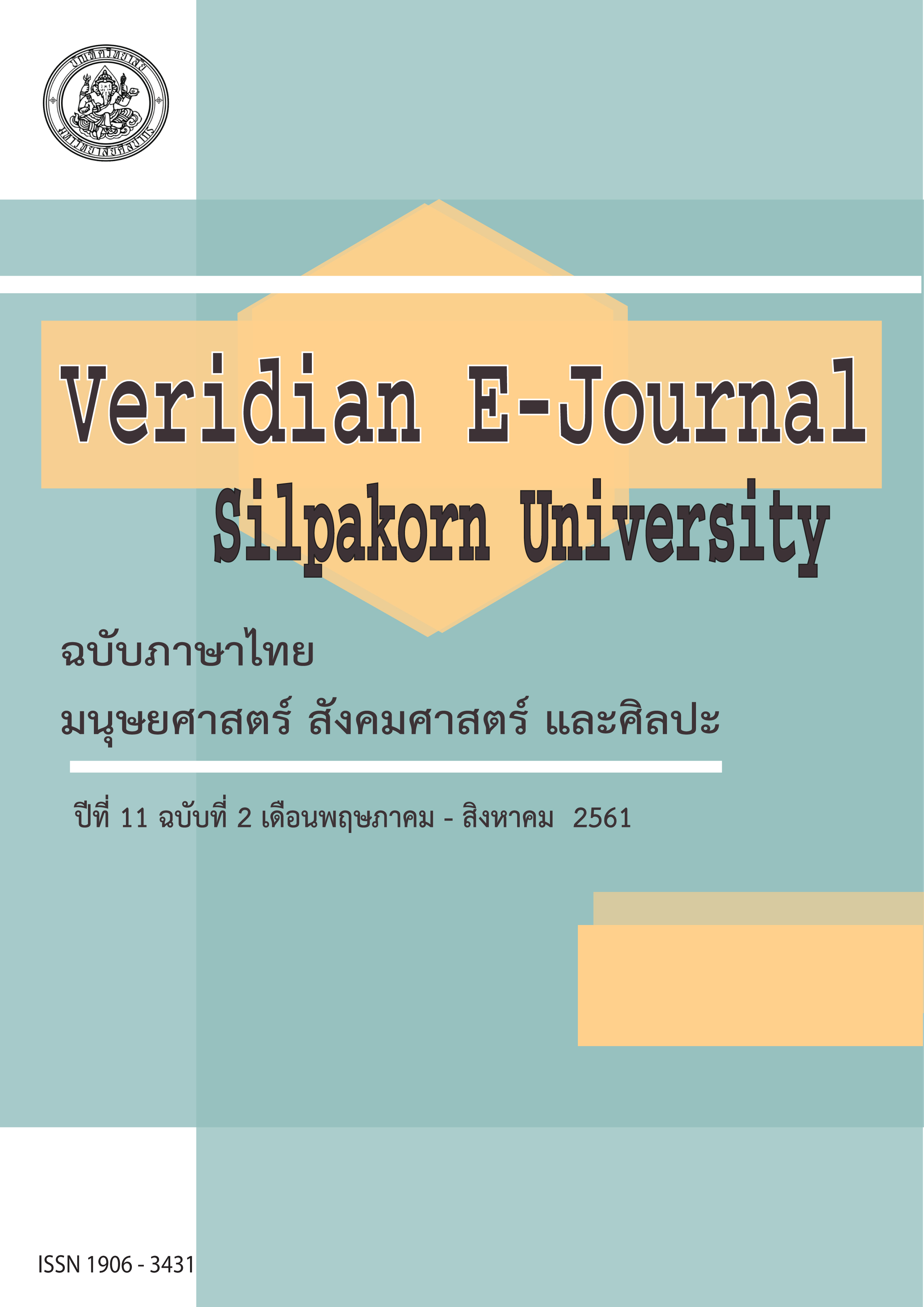แนวทางการจัดกิจกรรมการเรียนรู้เพื่อพัฒนาความเป็นผู้ประกอบการทางสังคมของนักเรียนประกาศนียบัตรวิชาชีพ ประเภทวิชาอุตสาหกรรม (Guidelines of Organizing Learning Activities for Developing Social Entrepreneurship of Industrial Vocational Certificate Students)
Main Article Content
Abstract
งานวิจัยนี้มีวัตถุประสงค์เพื่อ 1) ศึกษาสภาพของการจัดกิจกรรมการเรียนรู้ 2) ศึกษาปัจจัยเงื่อนไขในการจัดกิจกรรมการเรียนรู้ และ 3) ศึกษาแนวทางการจัดกิจกรรมการเรียนรู้เพื่อพัฒนาความเป็นผู้ประกอบการทางสังคมของนักเรียนประกาศนียบัตรวิชาชีพ ประเภทวิชาอุตสาหกรรม การดำเนินงานวิจัยแบ่งการศึกษาออกเป็น 3 ส่วนตามวัตถุประสงค์ คือ 1) ศึกษาสภาพของการจัดกิจกรรมการเรียนรู้ เก็บรวบรวมข้อมูลโดยใช้แบบสอบถามความคิดเห็นจากครูผู้สอนจำนวน 371 คน และนักเรียน ปวช. ช่างอุตสาหกรรมจำนวน 383 คน ซึ่งได้จากการสุ่มตัวอย่างแบบชั้นภูมิ สถิติที่ใช้คือ ค่าเฉลี่ย ค่าเบี่ยงเบนมาตรฐาน และการเปรียบเทียบค่าเฉลี่ย 2)ศึกษาปัจจัยเงื่อนไขในการจัดกิจกรรมการเรียนรู้โดยใช้แบบสอบถามความคิดเห็นจากผู้บริหารสถานศึกษาจำนวน 297 คนและครูผู้สอนจำนวน 371 คนซึ่งได้จากการสุ่มตัวอย่างแบบชั้นภูมิ การวิเคราะห์ข้อมูลใช้การเปรียบเทียบค่าเฉลี่ยระหว่างกลุ่มผู้บริหารสถานศึกษาและกลุ่มครูผู้สอน และการวิเคราะห์องค์ประกอบเชิงสำรวจ และ 3) ศึกษาแนวทางการจัดกิจกรรมการเรียนรู้เพื่อพัฒนาความเป็นผู้ประกอบการทางสังคม โดยการสัมภาษณ์ผู้เชี่ยวชาญด้านการจัดการอาชีวศึกษา และผู้ประกอบการทางสังคม จำนวน 15 คน และวิเคราะห์ข้อมูลเชิงคุณภาพโดยใช้การวิเคราะห์เนื้อหา
ผลการศึกษาสภาพของการจัดกิจกรรมการเรียนรู้ของครูและนักเรียนที่ไม่แตกต่างกันระดับนัยสำคัญ .05 พบว่า สภาพที่เป็นอยู่จริงของการจัดกิจกรรมการเรียนรู้มีจำนวน 10 รายการ และสภาพที่ควรจะเป็นของการจัดกิจกรรมการเรียนรู้มีจำนวน 2 รายการ ส่วนการทดสอบความเหมาะสมของปัจจัยมีค่าเท่ากับ .897 และมีความสัมพันธ์ของปัจจัยอย่างมีระดับนัยสำคัญ .05 ปัจจัยเงื่อนไขในการจัดการเรียนรู้สามารถแบ่งกลุ่มออกเป็น 3 ด้าน 1) ด้านการบริหารจัดการของสถานศึกษา 2) ด้านการสร้างเครือข่ายในการบ่มเพาะความเป็นผู้ประกอบการทางสังคม และ3) ด้านนโยบาย และการส่งเสริมของสถานศึกษา ส่วนแนวทางการจัดกิจกรรมการเรียนรู้เพื่อพัฒนาความเป็นผู้ประกอบการทางสังคม จากการสัมภาษณ์พบว่ามี 3 แนวทาง เพื่อพัฒนานักเรียนให้มีความรู้ ทักษะ และเจตคติของความเป็นผู้ประกอบการทางสังคม คือ 1) การจัดกิจกรรมการเรียนรู้ที่บูรณาการในหลักสูตร 2) การจัดกิจกรรมการเรียนรู้ผ่านหลักสูตรระยะสั้นของสถานศึกษา และ 3) การจัดกิจกรรมการเรียนรู้ผ่านกิจกรรมนอกหลักสูตร
The objectives of this research were: 1) to study states 2) to study factors, and 3) to study the guidelines of organizing learning activities for developing social entrepreneurship of industrial vocational certificate students. This research was divided into three objectives. The first objective studied the states for collecting data from 371 teachers and 383 students from stratified random sampling. The statistics used in this objective were the mean standard deviation and independent sample t-test. The second objective studied the factors of organizing learning activities using the opinions of two groups of 297 executives and 371 teachers derived from stratified random sampling. A questionnaire was used to collect the data. Data analysis employed an independent sample t-test and exploration factor analysis. In the third objective, organizing learning activities for developing social entrepreneurship were determined from depth interview with 15 purposively selected experts while the qualitative data were analyzed using content analysis.
The research findings revealed that the states of organizing learning activities between teachers and students with a 0.05 critical level of significance: no significant of 10 actual states and 2 expected states. The test of Kaiser- Meyer – Olkin Measure of Sampling Adequacy was .897 and Bartlett’s test was significant at the .05 level. The factors could be classified into 3 aspects: 1) administrative of college, 2) creating networks of incubation in social entrepreneurship, and 3) policies and supporting of college. The guidelines of organizing learning activities for developing social entrepreneurship from the depth interviews identified 3 guidelines for developing students’ knowledge, skill and attitude in social entrepreneurship: 1) integrating the learning activities into the curriculum 2) creating of learning activities in short course and 3) organizing of learning activities as the extracurricular activities.
